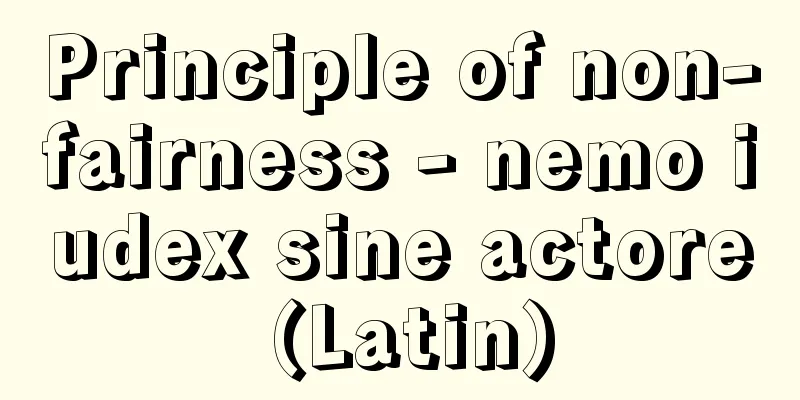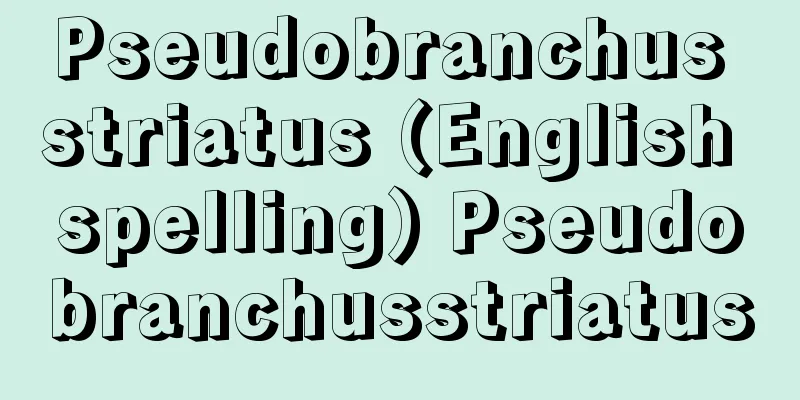Principle of non-fairness - nemo iudex sine actore (Latin)

|
In criminal proceedings, this principle dictates that the court should only wait for the public prosecutor to file charges, and only conduct trials on cases for which the public prosecutor has requested trial by filing charges. Prosecutions do not have any effect on anyone other than the defendant designated by the public prosecutor (Criminal Procedure Law, Article 249). If a judgment is not rendered on a case for which a trial has been requested, or if a judgment is rendered on a case for which a trial has not been requested, this becomes an absolute ground for appeal (Criminal Procedure Law, Article 378, Paragraph 3). There is a scholarly dispute over the interpretation of "incident." The first theory states that it refers to the criminal facts asserted as the cause of action, while the second theory states that it refers to the facts of the indictment that have unity and identity, including the specific cause of action in question. Differences arise in relation to the grounds for appeal. [Ichiro Uchida] In civil litigation, this is the basic principle that a lawsuit cannot be started unless a lawsuit is filed by the party (plaintiff). In other words, since civil litigation is a system for protecting the rights of the parties, the parties play a leading role, and the court hears and judges only matters that have been appealed (filed a petition for judgment), and does not rule on cases that have not been actively appealed or on matters that go beyond the scope of the lawsuit. Administrative litigation also follows this principle. [Takeyoshi Uchida] Source: Shogakukan Encyclopedia Nipponica About Encyclopedia Nipponica Information | Legend |
|
刑事訴訟では、裁判所は検察官の公訴の提起をまってのみ、そして検察官が公訴の提起によって審判を求めた事件についてだけ審判をなすべし、とする主義をいう。公訴は、検察官の指定した被告人以外の者にその効力を及ぼさない(刑事訴訟法249条)。審判の請求を受けた事件について判決をせず、または審判の請求を受けない事件について判決をした場合には、絶対的控訴理由になる(同法378条3号)。「事件」の解釈については学説上争いがある。第一説は、訴因として主張された犯罪事実をいうとし、第二説は、具体的な当該訴因を含めた単一性、同一性を有する公訴事実をいうとする。控訴理由との関係で差異を生じる。 [内田一郎] 民事訴訟では、当事者(原告)の訴えの提起がなければ訴訟は開始されないという基本原理をいう。すなわち民事訴訟は、当事者の権利保護のための制度であるから、主体性を当事者側に置き、裁判所は訴え(判決の申立て)のあった事項についてだけ審理判決し、積極的に訴えのない事件、また訴えの範囲を越えた事項については判決しない、という原則である。行政訴訟もまたこの原則をとっている。 [内田武吉] 出典 小学館 日本大百科全書(ニッポニカ)日本大百科全書(ニッポニカ)について 情報 | 凡例 |
<<: Fugoppe Cave - Fugoppe Cave
>>: Enrich the country and strengthen the military
Recommend
air brake
...They are located on the trailing edge of the w...
Higaki
Noh piece. Third piece. Current piece of the five...
Completely randomized method
…(3) Local control Let us consider a case where t...
Atherix morimotoi (English spelling) Atherix morimotoi
…[Tetsu Shinonaga]. … *Some of the terminology th...
Eva Peron (name) - Eva Peron
...1919-52). Perón won a landslide victory in the...
Bracken (Pteridium aquilinum)
A summer-green fern of the bracken family. It is f...
Catheter - Katheter (English spelling) German
A tube used to drain the contents of a body cavit...
London Missionary Society
An organization founded in London in 1795 with the...
Hanthawaddy
...Hanthawaddy was a dynasty of the Mon people in...
One-man sumo - Hitorizumo
1. The act of one person performing the movements ...
Cannula (English spelling)
A slightly thicker tube that is inserted into a tu...
Blount, T.
…The first independent English dictionary was cre...
Barbizon School - Ecole de Barbison
A 19th century French school of painting. A gener...
Heating furnace
A furnace that heats objects (solid, liquid, gas)...
Legally Reserved Share
This refers to a certain percentage of inherited ...









